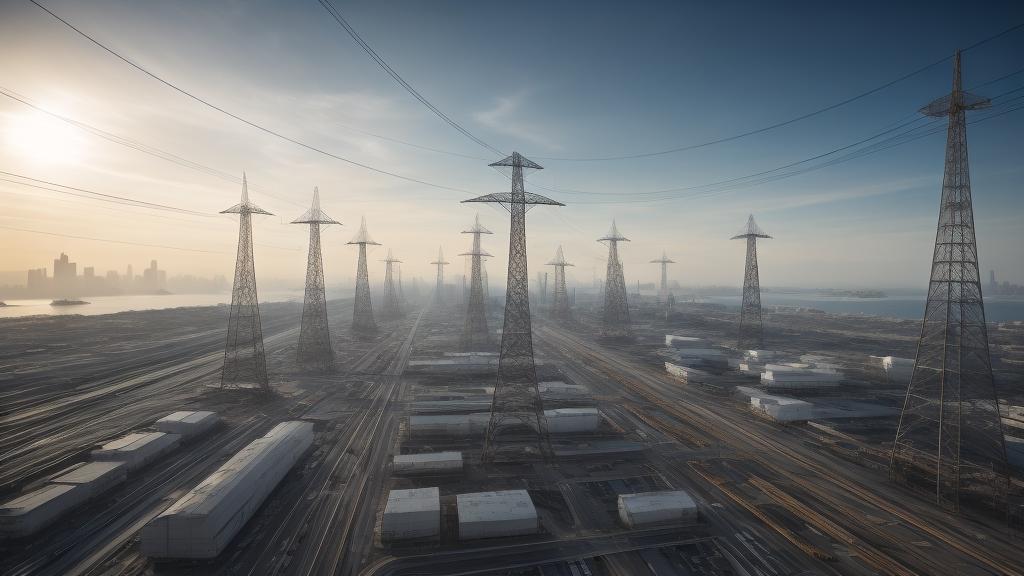The energy sector is undoubtedly one that constantly seeks innovation, and in recent times, blockchain technology has been heralded as the next big thing. As we delve into the depths of how blockchain can practically and effectively integrate into smart grid technology, its potential becomes increasingly clear—ushering in a new era of efficiency and transparency.
Blockchain, the digital ledger technology primarily known for underpinning cryptocurrencies, holds monumental promise for the energy sector. Its ability to create secure, immutable records makes it ideal for creating transparent and tamper-proof systems. Given the complexity of modern energy grids, the ability to manage and validate transactions with no central authority could redefine decentralization in energy distribution.
Smart grids are intricate systems that utilize digital technology to monitor and manage the transport of electricity from all generation sources to meet the varying electricity demands of end users. Integrating blockchain into this framework ensures real-time recording of information which can significantly reduce the occurrence of discrepancies and inefficiencies.
One of the most promising applications of blockchain in smart grids is improving demand response systems. Currently, demand response programs rely on centralized systems to manage the consumption balancing between energy supply and user demand. Blockchain provides a more decentralized approach, enabling peer-to-peer energy trading. This technology entrusts consumers with the ability to generate, store, buy, and sell energy more freely and transparently, potentially revolutionizing energy economies.
Furthermore, blockchain can enhance the reliability of energy data. By continuously recording consumption data on secure blockchain ledgers, discrepancies and manipulations are easily detectable. This increased reliability in data can streamline billing processes, reduce fraud, and build trust among consumers, retailers, and grid operators.
Security is another critical benefit brought forth by blockchain technology. Smart grids, being digitally connected networks, are susceptible to cyber-attacks. Blockchain’s encryption methodologies and consensus mechanisms ensure that data is shared securely, and any attempt to alter recorded transactions is virtually impossible without detection.
Moreover, blockchain’s potential to manage large swathes of data and automate transactions through smart contracts aligns well with the future growth of the internet of things (IoT). In a blockchain-encrypted smart grid, devices can autonomously execute pre-agreed transactions. For example, electric vehicles can autonomously purchase and settle payments for charging from the grid in real-time, enhancing the efficiency and user experience.
The economic landscape of energy is poised to undergo significant transformations with the adoption of blockchain. The decentralization not only democratizes energy management but also opens up novel business models and market structures. Startups and tech giants are keenly exploring blockchain applications to create new revenue streams and disrupt traditional energy paradigms.
Despite these promising features, integrating blockchain technology into smart grids is not without challenges. Scalability is a major concern, as current blockchain architectures may struggle to handle the immense volume of transactions generated by an entire smart grid ecosystem. Furthermore, interoperability with existing grid systems and regulatory compliance presents significant hurdles.
Nevertheless, ongoing research and pilot projects are making strides in overcoming these barriers. Collaborative efforts between technologists, energy experts, and regulators are crucial to carefully design and implement scalable blockchain solutions that can seamlessly integrate with current energy infrastructures.
In conclusion, the intersection of blockchain technology and smart grid systems holds unprecedented potential to revolutionize the energy sector. By enhancing transparency, security, and efficiency, blockchain can address many of the current challenges faced by traditional energy systems. As stakeholders across the energy landscape continue to innovate, the future of decentralized, smart, and transparent energy systems appears brighter than ever.
Revolutionizing the energy landscape: Blockchain’s potential in smart grid technology

